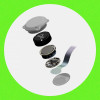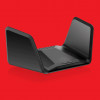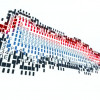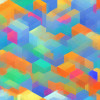The mind-blowing possibilities of quantum computing
Getting meaningful results from a quantum computer requires what can only be described as a little magic.
Traditional computers – from your desktop PC to the supercomputers that IBM builds when it's showing off – all use a system of switches that can be either on or off. We represent this binary state with a 1 or a 0. Quantum computers are different in that they can be in both of these states at the same time. These states are called 'superpositions'.
The basic unit of a quantum computer is a quantum bit or 'qubit', and their ability to be in two simultaneous states is what makes quantum computers so fast. Sound more like magic than science? Read on, and you'll discover that despite all the arcane physics, a working practical quantum computer could be just around the corner.









































































